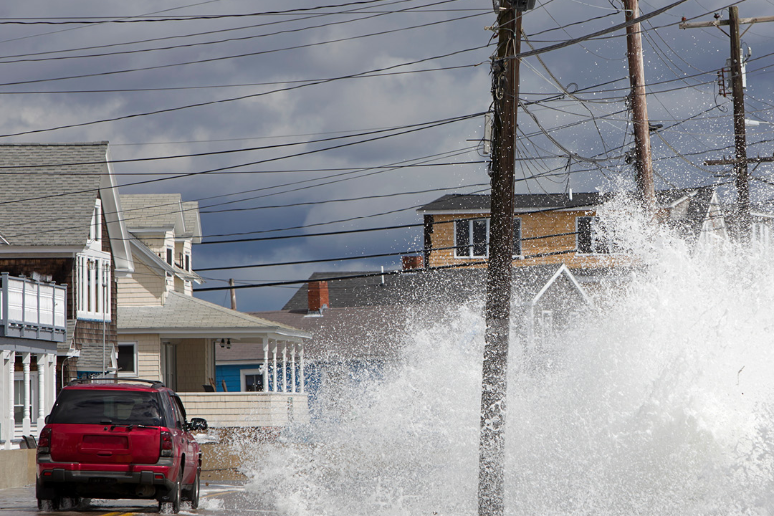If you own coastal property, it’s high time to make sure your affairs are in order. Hurricane season is once again upon us. Atlantic hurricane seasons—the period between June 1 and November 30—typically have 12 named storms and six hurricanes, three of which are major. These extreme weather events have been costly to those whose livelihoods were directly affected as well as to those who weren’t.
The emotional and financial aftermath of a hurricane can be devastating. In some cases, people feel they’ve lost everything, from family heirlooms and pictures to valuable jewelry and art. Formulating an action plan is often the last thing a person wants to do after suffering extensive damage and loss. But doing so can help you protect your rights, save money, and get your life back in order in the quickest, most efficient manner possible.
Devastating storms are on the rise
Between 2014 and 2018, the US experienced an average of 12.6 weather and climate-related disasters. Last year’s Atlantic hurricane season featured a total of 15 named storms, eight of which were hurricanes. These devastating storms included the Category 4 Hurricane Florence and Category 5 Michael. In 2017 alone, 16 distinct natural disasters amassed a record-breaking cost of $306.2 billion. One can only expect these annual costs to keep climbing as coastal properties remain vulnerable to hurricanes and other climate disasters.
The national response to devastating hurricanes is wide-ranging. After Hurricane Harvey, a coalition made up of local and state agencies, the Federal Emergency Management Agency (FEMA), nonprofit organizations, and businesses specializing in disaster clean-up came to the aid of Texas residents. Similar response protocols are in place across the country for natural disasters of divergent natures.
Natural disasters are only becoming more common. If you lose your home in a hurricane you could become embroiled in a variety of legal issues relating to property damage, insurance, and in some cases fraud. Make sure you contact FEMA, your homeowner's insurance company, the government disaster assistance resource center, and an attorney experienced with dealing with insurance matters and representing property owners.
Know your rights
No matter the national response, if your home was severely damaged, you will have pressing questions to address.
First, do you need to keep making mortgage payments? Unfortunately, there is no universal answer to this question. Whether you owe payments on a home that was destroyed in a storm will depend on the terms of your agreement and your ability to pay. Depending on the level of damage sustained, however, you may qualify for assistance from FEMA. Bear in mind that you cannot receive the same assistance from FEMA that you received from your insurance company; assistance would cover items not protected by insurance. FEMA assistance is also limited to repairs and temporary housing; they cannot pay your mortgage payments.
The organization’s FAQ notes the following: “FEMA assistance is limited to home repair, personal property repair, and rental assistance for temporary housing; we are unable to assist with mortgage or rent payments if you stay in your damaged home. If you lost work as a result of the disaster, you may qualify for Disaster Unemployment Assistance (DUA). You may contact your local unemployment office or Workforce Commission for additional information regarding DUA benefits. You may also contact your mortgage lender or landlord to explain your circumstances and situation to see if special arrangements can be made.”
Insurance plans and state laws also vary. According to the National Association of Insurance Commissioners, “Nineteen states (Alabama, Connecticut, Delaware, Florida, Georgia, Hawaii, Louisiana, Maine, Maryland, Massachusetts, Mississippi, New Jersey, New York, North Carolina, Pennsylvania, Rhode Island, South Carolina, Texas, and Virginia) and the District of Columbia currently have some form of a hurricane or named storm deductible in place. Other states may allow insurers to include hurricane deductibles in property insurance products.” Even so, your plan might not cover everything that could be damaged in the event of a devastating storm. You might be protected against flooding but lack protection for high winds, for example. It’s crucial to consult with local authorities and your insurance company to know the extent of your coverage.
If assistance from your insurance company and FEMA does not cover the mortgage you owe, or you are otherwise unable to continue payments on your home, options might still be available to you. Talk with a Department of Housing and Urban Development (HUD) approved housing counselor before agreeing to forbearance.
Beware of scam artists
Unfortunately, price gouging and home repair scams abound following natural disasters. To avoid becoming a victim, never exchange money without a signed contract, and always ask for professional references and proof of applicable licensing and insurance.
In some states, like Texas, price-gouging laws are designed to protect consumers as it is illegal to charge unreasonably high prices for necessary items during a natural disaster. During Hurricane Harvey, the Texas attorney general’s office “collected $166,000 mostly from gas stations, which were the subjects of the overwhelming majority of consumer complaints. We pursued those that charged nearly double the average daily rate per gallon before the storm and collected additional civil penalties when they charged another dollar on top of that.” Price-gouging laws across the country are complicated and leave consumers with an unclear understanding.
Notably, the Supreme Court Case United States v. Commodities Trading Corp., ruled that “it is constitutional for each state to individually declare the legality of price gouging.” Florida’s Rental or Sale of Essential Commodities During a Declared State of Emergency law states it is illegal if “the amount charged grossly exceeds the average price at which the same or similar commodity was readily obtainable in the trade area during the thirty days immediately prior to a declaration of a state of emergency.” In short, the lack of specific numerical values on the prices of disparate goods makes controlling price gouging a difficult task. A consumer protection attorney can help you navigate these difficult legal questions should you find yourself the victim of unfair business practices.
Watch out for identity theft
Following a natural disaster, consider contacting one of the nationwide credit reporting agencies such as Equifax, Experian, and TransUnion to request the addition of a fraud alert to your credit report. This process will prevent creditors from accessing your information without first answering specific questions to verify your identity.
If you think you have fallen victim to an identity theft scheme, be prudent and make sure you:
- File a report with the police.
- Inform the relevant credit card company or bank embedded by the fraud.
- Change your online passwords and use two-factor authentication whenever possible.
- Get in touch with an experienced attorney to help navigate your legal recourse and gain a better understanding of your rights.
Prevent disputes with contractors
If your home sustained property damage, you will likely need to deal with contractors. Intense winds and surging waters can damage your property’s roof, its interior, necessary utilities, and equipment both outside and inside the home. To avoid disputes, ensure that you have a solid contract before any work begins. Ask a knowledgeable lawyer to review the contract before you sign. In addition to itemizing all labor and supply costs, the contract should also provide a specific timeline during which the work will be completed.
Ensure a smooth insurance claims process
Filing claims and waiting for reimbursement can be an exhausting and frustrating experience. Your insurance company should be able to give you an idea of how long you have to file your claim, and how long it will take that claim to process. To make things go more smoothly, consider the following:
- Review your insurance policy to familiarize yourself with deductibles and policy terms
- Save all documents, emails, and other correspondences
- Respond to all requests in a timely fashion
Enduring a natural disaster can take a toll on the best of us. National organizations like FEMA, the Environmental Protection Agency, and HUD are integral to providing disaster relief and helping families get back on their feet. Residents in areas that regularly experience heavy hurricane activity may be familiar with the work of organizations like the American Red Cross, DirectRelief, Habitat for Humanity, National Voluntary Organizations Active in Disasters, Texas Diaper Bank, Volunteer Florida, the North Carolina Community Foundation, and others.
Natural disasters can contribute to a host of physical, mental, and emotional hurdles that are hard to navigate alone. Don’t hesitate to reach out for support—it is available. The tips above will help, but consulting with an experienced attorney is the best way to ensure a positive outcome.
 By Amy Carst,
By Amy Carst, 

